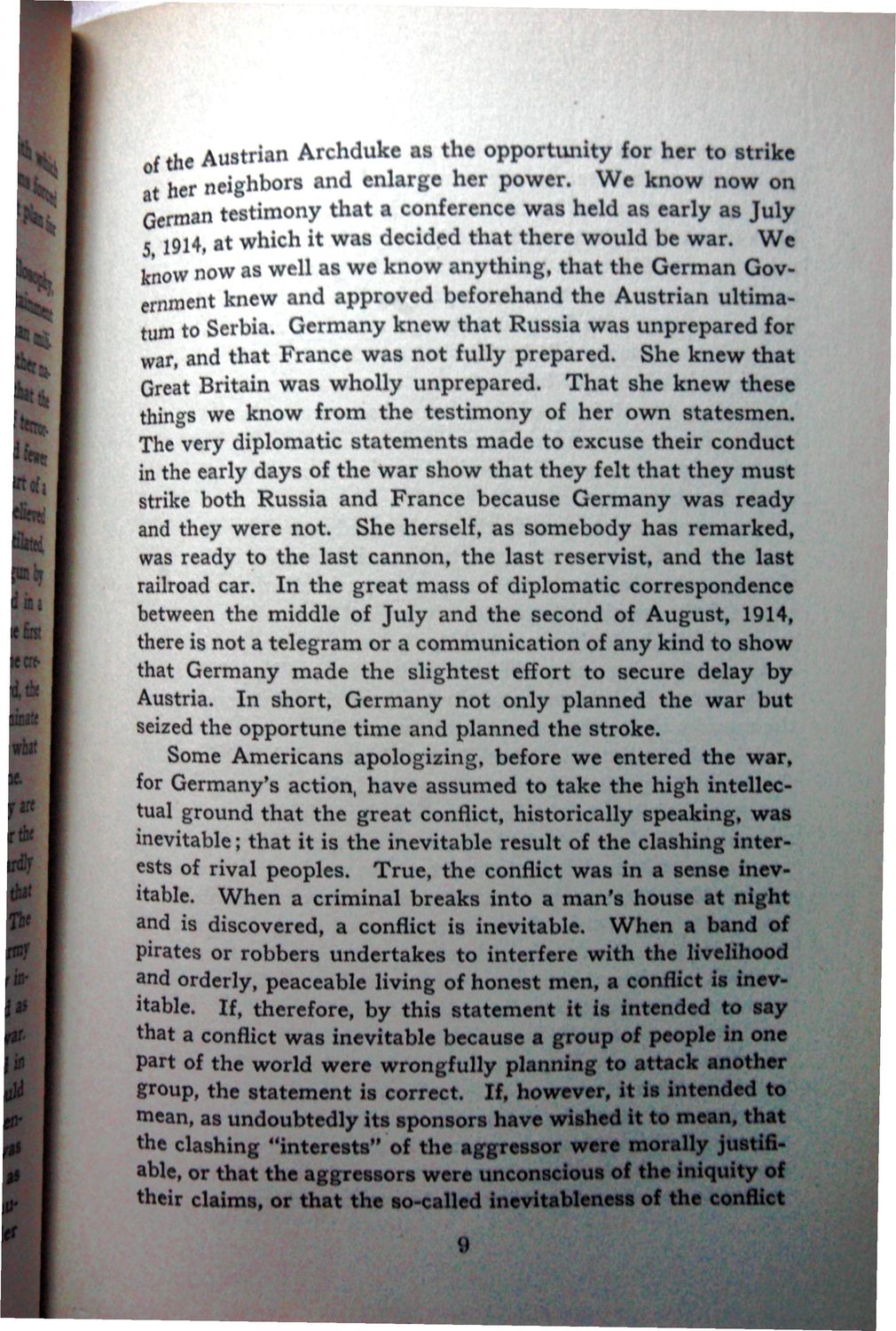| |
| |
Caption: War Publications - WWI Compilation 1923 - Article 25
This is a reduced-resolution page image for fast online browsing.

EXTRACTED TEXT FROM PAGE:
f the Austrian Archduke as the opportunity for her to strike her neighbors and enlarge her power. W e know now on German testimony that a conference was held as early as July S 1914, at which it was decided that there would be war. We know now as well as we know anything, that the German Government knew and approved beforehand the Austrian ultimatum to Serbia. Germany knew that Russia was unprepared for war, and that France was not fully prepared. She knew that Great Britain was wholly unprepared. That she knew these things we know from the testimony of her own statesmen. The very diplomatic statements made to excuse their conduct in the early days of the war show that they felt that they must strike both Russia and France because Germany was ready and they were not. She herself, as somebody has remarked, was ready to the last cannon, the last reservist, and the last railroad car. In the great mass of diplomatic correspondence between the middle of July and the second of August, 1914, there is not a telegram or a communication of any kind to show that Germany made the slightest effort to secure delay by Austria. In short, Germany not only planned the war but seized the opportune time and planned the stroke. Some Americans apologizing, before we entered the war, for Germany's action, have assumed to take the high intellectual ground that the great conflict, historically speaking, was inevitable; that it is the inevitable result of the clashing interests of rival peoples. True, the conflict was in a sense inevitable. When a criminal breaks into a man's house at night and is discovered, a conflict is inevitable. When a band of pirates or robbers undertakes to interfere with the livelihood and orderly, peaceable living of honest men, a conflict is inevitable. If, therefore, by this statement it is intended to say that a conflict was inevitable because a group of people in one part of the world were wrongfully planning to attack another group, the statement is correct. If, however, it is intended to mean, as undoubtedly its sponsors have wished it to mean, that the clashing "interests" of the aggressor were morally justifiable, or that the aggressors were unconscious of the iniquity of their claims, or that the so-called inevitableness of the conflict U
| |